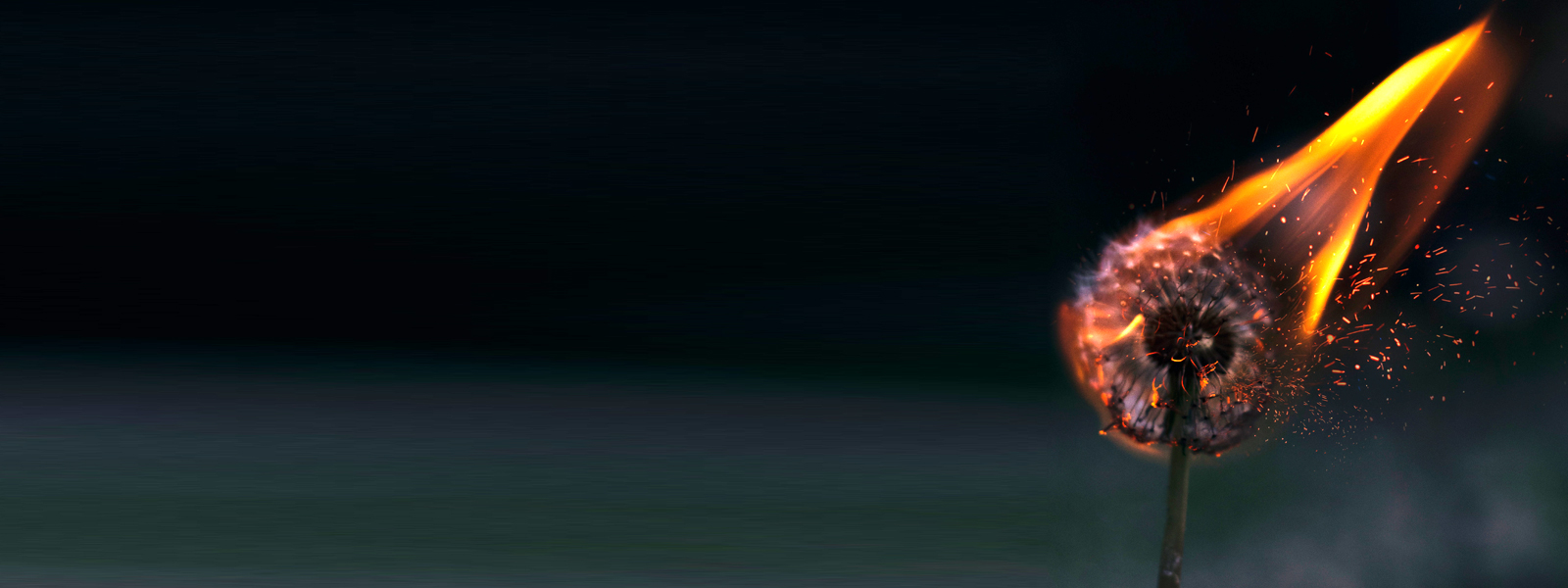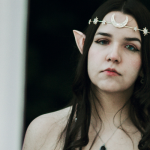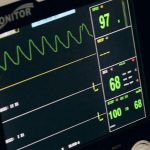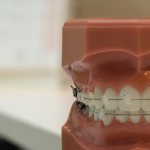Good for the garden, my father says.
His skin prickles, raindrops on the window reflecting his anxiety.
Good for your father, my mother says. Behind his back, whispering it to me as we watch him fidget.
The rain stops and he returns outside. We watch from the kitchen, eating homemade flapjacks. He sharpens tools, swearing under his breath, loud enough for us to hear. Mid-afternoon he brings a portable television out onto the lawn, playing the Saturday sport as he works.
Huffing in the flowerbeds, tearing out the roots. Every weekend the same. Perfecting edges and sculpting the layout.
It’s his military training, my mother says.
She tells me his war stories, and how it can change a person. That evening I ask if he ever killed anyone.
Not directly, she says.
*
I come home from school to find my mother pale and wearing her bravest of faces. There is no explanation for his leaving. Nothing that I as a child would understand.
None of this is your fault, she says.
*
He visits one weekend, awkward and silent.
We watch from the decking as he tends to the garden, like nothing has changed. The lawn unkempt, the weeds free to roam in his absence.
Weekend visits become more frequent. On my birthday, he brings home a mini snooker table, the brown ball missing. We play our own rules late into the evening, his kiss awkward and silent before bedtime.
He never stays over.
Sometimes in the afternoon he goes upstairs with mother, leaving the television out on the lawn. I watch matinee science fiction, plotting how to bring him back for good.
*
Summer brings with it four days of record temperatures, the garden perfect kindling.
Mother and father are upstairs, curtains drawn. On the lawn, I stir a mixture of nail polish, bathroom cleaner, cooking oil, paint stripper. A bucket of flammable rainbows.
When I paint the garden it is methodical, like my father. Plants crystallise under my touch, shrivelling under the fumes. They beg me to stop, beg for the rain, as I throw the dregs over a large buddleia in the corner.
An audible spark, and the south facing flowerbed goes up first. Fire rises across the lawn towards me, igniting the specks on my skin.
Years of work, going up in smoke.
*
My father stays overnight. At my hospital bedside, tracing the new shapes on my skin with dirty fingernails.
When my mother arrives he leaves without word, the garden calling.
None of this is your fault, she says, pulling at her sleeves.
*
Weeks later he returns home, his breath flammable.
He storms into the flowerbeds, his dead heading frenzied. Mother sits with me for the afternoon film, an alien planet, reminiscent of our scorched lawn. Wild flowers grow around the television. Bees listen in to our conversation. All dangerous liquids locked out of reach. My skin hardened and sensitive to the light.
She talks about the military, and how it taught him good things and bad. How I will understand when I am older. As I watch him it begins to make sense. His discipline in the flower beds, and the way he handles the ones that are dead.
…
Biography
Paul Thompson lives and works in Sheffield. His stories have appeared in Spelk Fiction, Ellipsis Zine and The Cabinet of Heed. His work also recently appeared in the National Flash Fiction Day anthology 2019. Twitter: @hombre_hompson.
Image: unsplash.com





